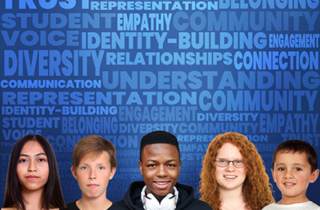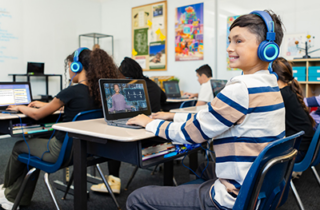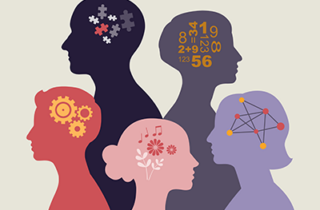Traditional discipline in schools can have long-term negative impacts, especially for students of color, often suspended for ambiguous and subjective reasons. Restorative discipline is a method that helps schools move beyond standard discipline to improve behavior equitably and in culturally responsive ways.
Presented by Toni Liza DeMello, District Manager, MTSS, Chicago Public Schools (IL); and Dr. Eva Dundas, Chief Academic Officer, Branching Minds
Presented by Jay Jay Pina, Academic Support Mentor, Chelsea Opportunity Academy (MA); and Laurie Gagnon, CompetencyWorks Program Director, Aurora Institute
Presented by Tanis Griffin, Principal, Thompson Intermediate School, Pasadena Independent School District (TX); Heather Nielson, Special Education Teacher, Thompson Intermediate School, Pasadena Independent School District (TX); Dr. Shivohn García, Director, Equity Research and Insights, Understood; and Jared B. Fries, Partnerships Lead, Along by Gradient Learning
Presented by Alana Winnick, Educational Technology Director and Data Protection Officer, Pocantico Hills Central School District (NY); Ken Shelton, International Speaker and Consultant, Elevate Education; and Diana Hughes, Vice President, Product Innovation and AI, Age of Learning
Moderated by Sunil Gunderia, Chief Innovation Officer, Age of Learning
Presented by Kamilah Drummond-Forrester, Equity Leader, Founder and Principal Consultant, KDRUMM Consulting LLC; Colleen Martin, Principal, Shoreline Middle School (CA); and Dr. Soundhari Balaguru, Clinical Psychologist and Founder, Integrated SEL
Moderated by Jessica Berlinski, Director of PreK-12 Education, Ripple Effects
Presented by Dr. A’Seret Dokubo, Managing Director of Fellowships, SELF
Presented by Dr. Patti Kelly Ralabate, Executive Director, PKR Professional Learning
Presented by Lydia Pinto, Ambassador, Eye to Eye National; Lily Eisele, Ambassador, Eye to Eye National; Carlye Raabe, Ambassador, Eye to Eye National; and Alexandra Claeys, Director, Community Leadership, Eye to Eye National
Due to an increase in teacher shortages around the country, the need to hire highly qualified teachers, especially teachers of color, is challenging school district leaders to rethink and revamp their recruitment and retainment efforts.










